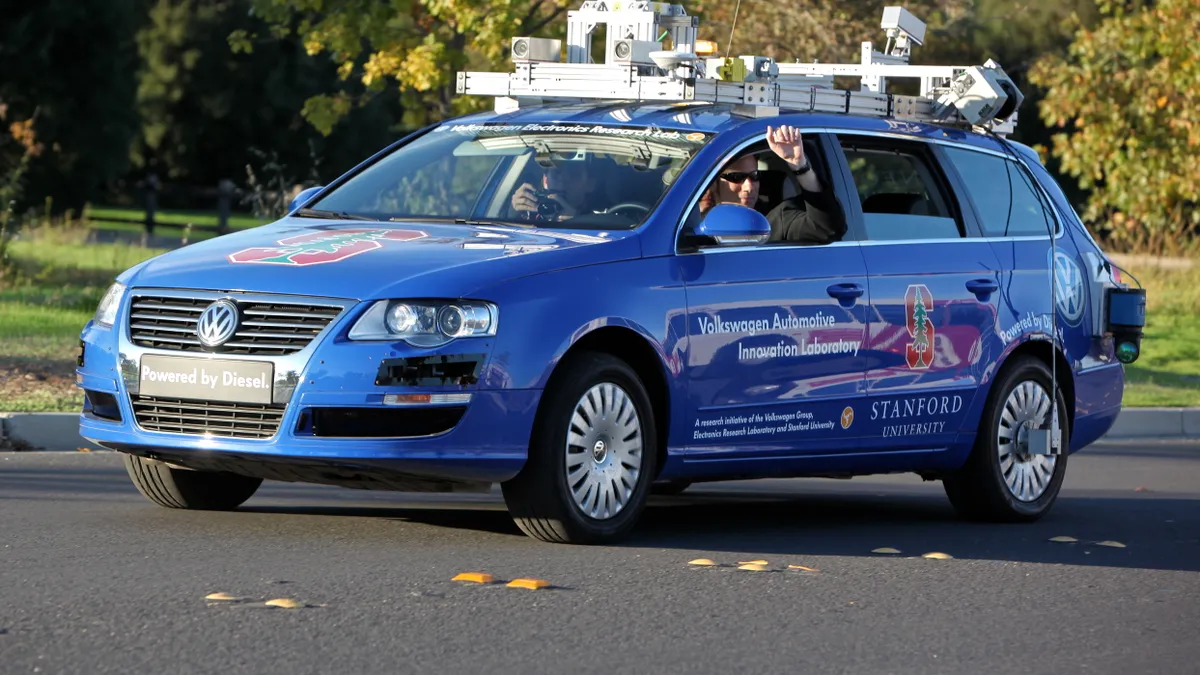Dive Brief:
- A new study from Cox Automotive, entitled Evolution of Mobility: Autonomous Vehicles, shows that although public knowledge of autonomous vehicles (AVs) has increased significantly, consumers view them as less safe than they did two years ago.
- Knowledge of AVs has jumped by more than 20% in the past two years, with 78% now aware of fully autonomous vehicles with human back-up drivers. However, only 45% believe those vehicles are safe, down from 64% two years ago.
- Half to two-thirds of survey respondents like certain semi-autonomous features like collision alert systems and parking assist, and 54% believe new technology makes better drivers. But 68% said they would be uncomfortable riding in a fully-automated vehicle driven by a computer, and 84% believe people should always have the option to drive themselves in an AV.
Dive Insight:
Although learning more about and understanding an emerging concept or product often leads to its greater adoption, the opposite appears to be the case with AVs. Consumers appear to be growing more apprehensive of the technology as they gain awareness of it.
Part of this likely stems from some high-profile recent accidents involving AVs, like the fatal collision in Arizona or the autonomous shuttle fender bender in Las Vegas, in which the other driver was at fault. The respondents were largely aware of such incidents, with 61% having heard about the Uber accident.
Even if another person or vehicle is at fault, the perception is that AVs wouldn't be able to react quickly or effectively enough to avoid an altercation. Although the reality is that even human-driven vehicles are victims of unavoidable collisions caused by other drivers, it's natural for humans to feel skeptical in potentially dangerous situations that are out of their control, such as with fully autonomous automobiles.
One implication from this study is that AV advocates will need to work to change consumers' negative perceptions and fears of AVs through education in order to achieve widespread adoption. Highlighting AV safety measures and instating public safety policies for AVs likely will help to assuage at least some of the fears.
Despite the apparent consumer trepidation, Cox anticipates that AVs will catch on and change public mobility, particularly with ride-sharing businesses.












